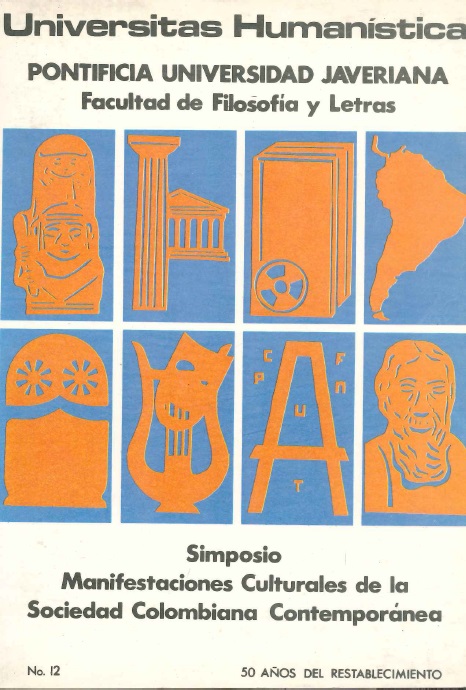Abstract
Si estudiamos los grupos humanos y sus manifestaciones culturales desde el punto de vista de la Ecología Humana la perspectiva que nos presenta el caso de Guambia vale la pena de ser analizada desde este punto de vista.
Los grupos humanos que extraen su subsistencia de la naturaleza, son grupos que deben estar adaptados al medio ambiente. Una vez que la cultura en su proceso de adaptación cambia las condiciones ambientales debe adecuar su sistema de producción a los cambios introducidos. Las relaciones hombre-medio ambiente se establecen en términos de su subsistencia como seres vivos. Todos los seres vivos deben solucionar tres necesidades básicas, alimentación, abrigo y reproducción. La alimentación y el abrigo (vivienda, vestido, protección social) son indispensables para la existencia de los individuos. Una mala alimentación o malas condiciones de vida causan la enfermedad y la muerte en los seres vivos. La reproducción entendida como necesidad biológica es la continuidad de la especie, como necesidad socio-cultural; la familia es la expresión más elemental del fenómeno.

This journal provides immediate open access to its content on the principle that making research freely available to the public, encourages greater global exchange of knowledge.
The journal Universitas Humanística is registered under a Creative Commons Attribution 4.0 International Public License. Thus, this work may be reproduced, distributed, and publicly shared in digital format, as long as the names of the authors and Pontificia Universidad Javeriana are acknowledged. Others are allowed to quote, adapt, transform, auto-archive, republish, and create based on this material, for any purpose (even commercial ones), provided the authorship is duly acknowledged, a link to the original work is provided, and it is specified if changes have been made. Pontificia Universidad Javeriana does not hold the rights of published works and the authors are solely responsible for the contents of their works; they keep the moral, intellectual, privacy, and publicity rights.
Approving the intervention of the work (review, copy-editing, translation, layout) and the following outreach, are granted through an use license and not through an assignment of rights. This means the journal and Pontificia Universidad Javeriana cannot be held responsible for any ethical malpractice by the authors. As a consequence of the protection granted by the use license, the journal is not required to publish recantations or modify information already published, unless the errata stems from the editorial management process. Publishing contents in this journal does not generate royalties for contributors.


